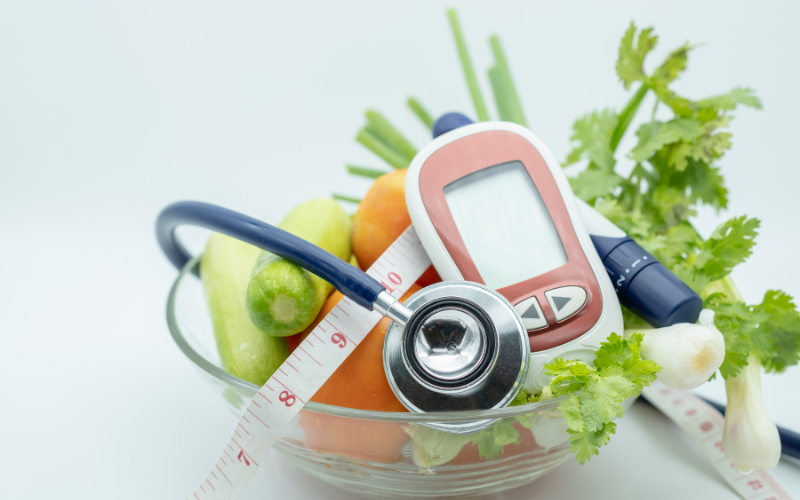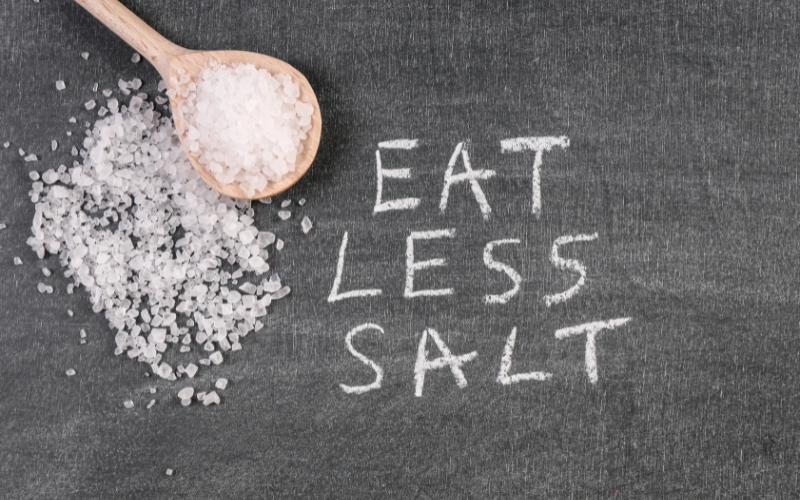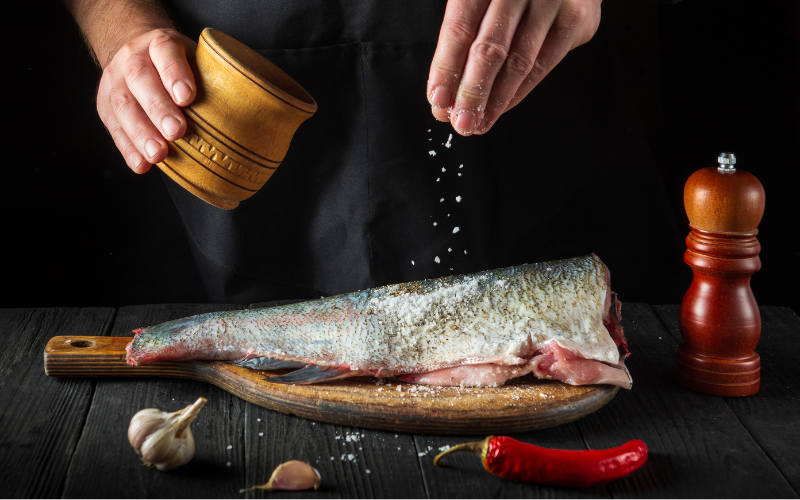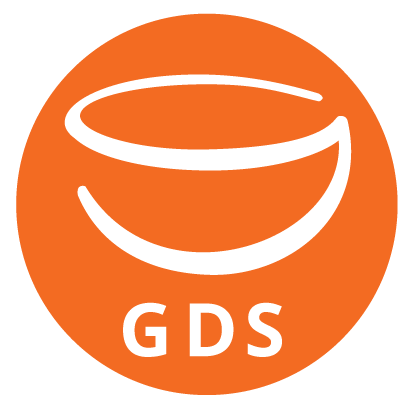Zoe Bingley-Pullin: How to lose weight - diet or exercise?
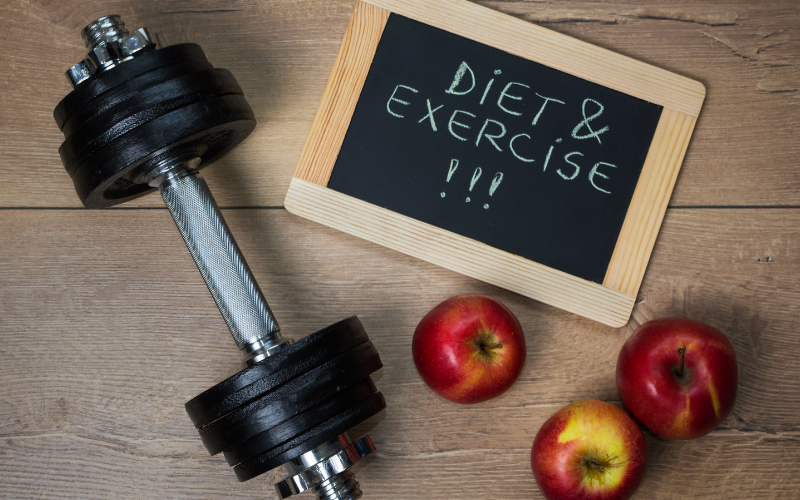
Let’s set the record straight – should I diet or exercise to lose weight?
The critical factor in how to lose weight is that you must create a deficit of calories. That means, eating less calories than you’re using up, so your body taps into its fat stores for the extra energy it needs to function. Studies have shown that it’s hard to achieve this through exercise alone and what you eat is a more effective method. Or more precisely, it’s what you don’t eat that counts.
You could spend an hour on the treadmill to burn a disappointingly small number of calories. Yet, cut out a coffee and biscuit and you’ve quickly achieved the same reduction in calories, with a whole lot less sweat and tears. That’s why experts tend to attribute as much as 80% importance to getting your dietary intake right for weight loss.
Not only that, but eating a healthy diet has numerous other benefits. For example, consuming a wide range of wholesome foods can reduce your risk of chronic disease, improve your skin to make you look younger, boost your cognitive abilities and brain health, plus assist you to cope better with stress. So, what sort of foods should you eat for good health and weight loss? I’m glad you asked!
Good weight loss foods
On the summit of any food chart designed for weight loss is food that is low in calories and high in nutrients. The ideal is to meet your overall recommended dietary intakes of vitamins and minerals with lower food consumption. The best weight loss foods are the ones you’ve probably already guessed:
- Vegetables – all vegetables are nutrient dense and offer low to moderate calories but some especially good choices are leafy greens, cruciferous veg and ones like celery, capsicum, tomato and mushroom which pack a nutritional punch on minimal calories. Make sure you select a range of different coloured veg to optimise your antioxidant intake. Some people think they need to steer clear of potatoes and other root vegetables but in fact they are very healthy weight loss foods that can fill you up and reduce your hunger.
- Fruits – choose low calorie, high water-content fruits of mixed colours. Berries are excellent, so too are citrus fruits, stone fruits, kiwi fruit, melons and apples. You really can’t go wrong with most fruits, despite the bad press around fructose. Whole fruit contains plenty of nutrients and the fibre will slow the release of any sugars. Definitely give up fruit juice which has all of the sugar and none of the beneficial fibre.
- Protein – it’s important to obtain protein at every meal and snack as protein keeps us feeling satisfied and prevents overeating and hunger. Protein can come in the form of meats, fish, eggs, beans, lentils, nuts and seeds.
- Healthy fats – it sounds counter-productive to a diet, but actually it’s been shown that consumption of healthy fats can help you feel full, reduce cravings and assist with the absorption of fat soluble vitamins. Things like nuts, seeds, avocados and olive oil are a must for any diet, in sensible quantities.
- Wholegrains – such as oats, barley, brown rice and quinoa. These low GI foods keep blood sugars stable, can lower cholesterol, make you feel full and deliver a good dose of gut loving fibre.
So now you know that diet accounts for 80% of weight loss, can you chuck in the exercise altogether? No way!
Why we still need to exercise
According to most experts, exercise alone earns a measly 20% standing when it comes strictly to weight loss, due to the time and effort needed to achieve weight loss results. As the saying goes, you can’t outrun a bad diet. However, please don’t give up on exercise! Here’s why.
Exercise assists weight loss by burning fat and building muscle, which diet alone can’t achieve. Muscle actually uses up less space than fat does so exercise can help you lose circumference off your body, helping clothes to feel looser and improving your body composition too. When you exercise, the benefits can last all day – your metabolism is boosted to burn calories and this stays up for many hours after you’ve finished exercising.
Studies show two additionally important insights for dieters. Firstly, people who exercise tend to eat healthier foods. Secondly, exercise is a key factor in weight maintenance. Many people lose weight and then put it back on but those who change their habits to include regular physical activity are more likely to succeed in keeping it off long term.
The benefits don’t stop there. Engaging in regular physical activity has been shown to improve blood pressure, insulin sensitivity, cholesterol levels, reduce pain, boost mood and energy levels, improve memory, assist with sleep and prevent disease. These are all amazing health benefits afforded to those who exercise regularly, regardless of whether it’s for weight loss or not.
More good news! You don’t need to run a marathon or put yourself through an intense boot camp. The research is clear that you can get the benefits of exercise in short sessions of moderate activity, which can be as simple as walking.
So the winner is diet AND exercise? Yes!
Have you heard the famous saying from Greek philosopher, Aristotle "the whole is greater than the sum of its parts"? It kind of applies here. We can lose weight with a calorie restricted healthy diet. We can also lose weight by increasing our physical activity. In the age-old question of how to lose weight, instead of choosing diet or exercise, the greatest results will come if we combine these methods. The equation looks something like this; 80% + 20% = 120%!
Combining diet and exercise accelerates your weight loss via calorie restriction plus calorie burning, boosting metabolism, improving body shape, feeling more energetic, wanting to eat wholesome foods and reducing your disease risk. It’s a self-perpetuating recipe for not only weight loss but overall good health!

